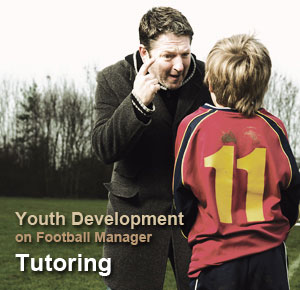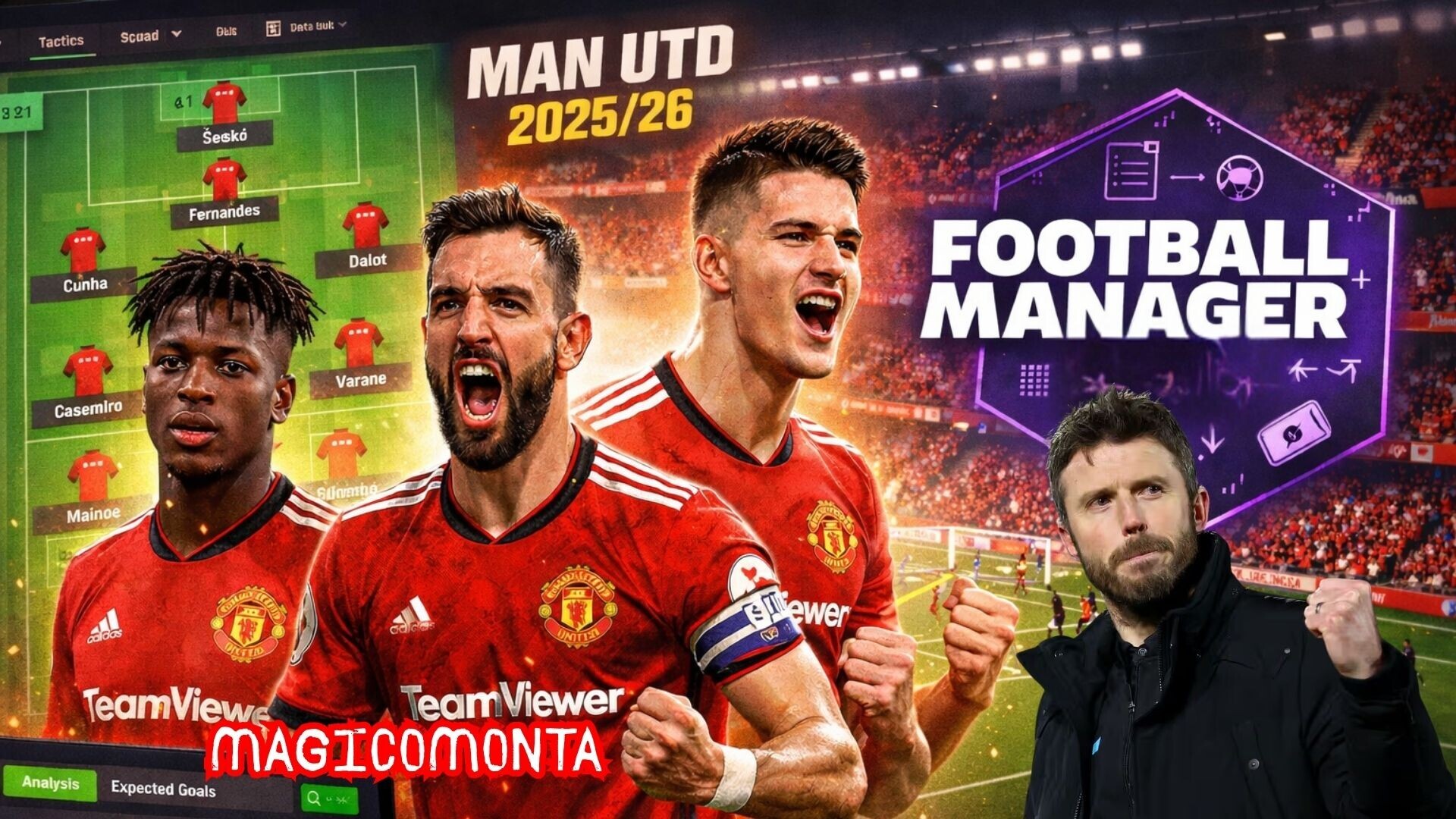
Tutoring is greatly underrated and underused by many in the FM community. In fairness a lot of it is very ambiguous and shrouded in theories and ideas but it is a very simple tool that makes youth development a whole lot more successful. At any one time, I probably have about 80% of my club's players involved in tutoring, whether that be as the mentor or the learner; it is the driving force behind my developmental system and can also help with team spirit and relationships. If you don't use it, here's why you should.
General points
- The top age for a learner is 22 (therefore the youngest age for a mentor is 23
- A tutor can mentor a youngster that vaguely shares any positions with them – eg a winger can tutor full backs sometimes
- A player under the age of 23 can be a tutor if they are captain
- A high rep youngster cannot be tutored by a low rep veteran
- Players cannot be tutors if they are learning a PPM
- Some PPMs can be passed on through tutoring that cannot usually be taught
- Tutors must have a higher squad status than the learner
You'll often see Tutoring greyed out: hover over it to see why
The importance of tutoring
So, what does tutoring do? I see a lot of people claim that a tutor will improve a player's mental attributes – not true. I can understand the idea and where people might get it from, but you are not going to turn Theo Walcott (not sure why I always use poor Theo as an example of a thick footballer) into Socrates from tutoring. Here is what tutoring changes:1. Determination
2. Adaptability
3. Ambition
4. Controversy
5. Loyalty
5. Pressure
6. Professionalism
7. Sportsmanship
8. Temperament
9. PPMs
As determined as a dog with an itch
Effectively then, tutoring changes a player's personality. These attributes are the contributors to what you see on a player's information tab, so theoretically you can turn a player from 'Casual' to a 'Model Professional' through tutoring, though probably not in just the one period. By the way, professionalism, ambition and determination are the attributes we're really looking to raise – these have a direct impact on the speed and success of development – though of course the others are handy to have.
It is important to change players' personality because their personality affects their behaviour off the pitch; on the pitch you can usually rely on a good player to play well regardless of whether he's a Balotelli or a Scholes (subject to any attribute differences etc) but off the pitch, their actions are almost entirely influenced by their personality attributes. It is arguably too easy to change a players' personality on FM, because there is no way in hell Balotelli will become the angel Gabriel, regardless of how much time he spends with Gareth Barry.
Players' personalities on FM are like putty; up to a certain age (23 on the latest patch) you can mould them and mash them into shape if you know your stuff, and you can rescue a young player from a life of drink-driving offences and gambling addictions, instead turning him into the professional, dedicated individual that every manager wants to manage.
Selecting a tutor-mentor match
You can go into all sorts of depths and theories here but for me it is very simple. I follow a few simple rules:Tutor should have a better personality than the learner. I would usually advise higher determination in a tutor but there are some cases where you may be best off sacrificing a few determination points to gain professionalism and ambition.The ideal personality is Model Citizen (indicates almost perfect personality attributes) but you won't often find players with that, so try and aim for Model Professional, Professional, Ambitious, Resolute, Spirited, Perfectionist and ones like that.
Tutor should not be too different from the learner. It is no point pairing players who are worlds apart – you have plenty of time, do it in phases. If you have a trainwreck of a player, start with someone with a Balanced personality and decent determination, and then someone who's Professional with good determination before finishing it off with your best tutor if need be. Work in phases and the tutoring will work much better; for a start there'll be more attributes 'passed on' and just as importantly, you'll get fewer arguments and more good relationships. I'm reliably informed that successful tutoring can improve morale so it's all the more important to keep it friendly!
Keep the best tutors for the best prospects. There's really no need turning your 1* PA 16 year old into the Paul Scholes of League Two. If you know you're only going to sell them on then still tutor them, but don’t try and craft them into the perfect personality.
When choosing between two fairly similar tutors, pick the one that the learner has on their Favoured Personnel or is known to 'love playing with'; if neither fits that, pick the one that shares a language with the learner. Neither of these relationships are greatly important but from my experience, they can help the success of a tutelage period.
Final words
Tutoring should be in the starring role of your youth development system and if it isn't, it should be at the very least, a brilliant supporting act. It allows you to completely transform players and the way they approach training, contracts and interaction with you and the other players. The beauty of developing a club identity of professionalism and determination is that it feeds itself; when one generation has been tutored into angelic beings, they can grow up and tutor the next generation. It's an ongoing process of learning and teaching that can ensure the future squads of your club are equally driven and ruthlessly professional as the last. This is how clubs are built and this is how clubs succeed.About the Authors
Push Them Wide is a blog by Jad Birch and Sean Jenkins. The two Football Manager players, united in a love for all things tactical, hope to bring you a subjective, opinionated stance on the latest trends in world football. Follow them on Twitter.








![FM26 Data Tweaks [v2.0 | v3.1]](https://i.postimg.cc/t4fKVrB7/wonderkid.png)


Discussion: Youth Development on Football Manager: Tutoring
4 comments have been posted so far.
Good Article !